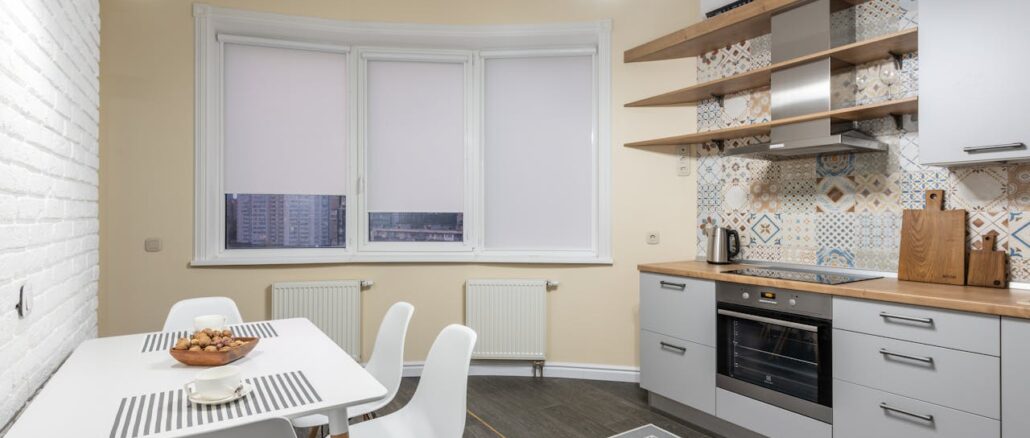
Photo by Max Vakhtbovycn:
With the ever-increasing cost of living, expense management has become very necessary. Utility bills, which consist of electricity, water, and gas, comprise household expenditures. Fortunately, there are numerous smart practices that you can adopt to bring down these bills without compromising on your comfort. This blog will walk you through 10 practical strategies to help save money on utility bills.
Understanding Your Utility Bills
First, before looking at practices, knowing your utility bills is essential. Electricity, water, and gas usage charges form a typical bill composition. Keep an eye on your consumption pattern and realize areas where you can cut costs. Comparing occasionally may bring out unusual spikes or trends needing attention.
How Can Energy Efficiency Help Reduce Utility Bills?
Energy efficiency offers enormous prospects for reducing utility bills. An essential exercise like a home energy audit could unmask the inefficiency areas. If you can increase your home’s energy efficiency, you can significantly reduce energy usage and, hence, your utility bills.
Simple actions, such as replacing incandescent bulbs with LED bulbs that use up to 75 percent less energy, can save loads. Also, efficient appliances, like refrigerators and air conditioners, use less power than units performing similar functions.
10 Smart Practices to Reduce Your Utility Bills
Install Energy-Efficient Appliances
Energy-efficient appliances require less electricity and water than regular models. When buying appliances, remember to look for the Energy Star certification. This certification shows that the product meets the energy efficiency standards established by the US EPA (United States Environmental Protection Agency). Choosing energy-efficient appliances can result in substantial long-term cost savings.
Use Smart Thermostats
Smart thermostats learn and follow your activities throughout the day so that the temperature will be okay at home but mostly turn off when you are away. They can also, second to the former, be remotely controlled using smartphone applications. This enables individuals to manage their heating and cooling even when out of their houses. Setting your thermostat to recommended temperatures for different seasons can save you significant savings.
Seal Windows and Doors
Proper insulation is truly crucial for maintaining a comfortable temperature indoors and cutting down on heating and cooling expenses. Inspecting windows and doors for drafts and sealing gaps using weatherstripping or caulk is also important. This helps prevent air from leaking out of your home and allows your HVAC system to work more efficiently.
Regular HVAC Maintenance
Proper maintenance will keep your heating, ventilation, and air conditioning running efficiently. Make sure that the filters are changed after a reasonable time frame, then inspect them annually to enable the solving of problems immediately. An efficient HVAC system applies less utility and hence saves on utility bills.
Reduce Water Heating Costs
One of the largest energy expenses in most houses is water heating. To save energy, reduce your water heater thermostat setting to 120°F. You can decrease the frequency of reheating by insulating the water heater and pipes, which will hold more heat. Minor adjustments can go a long way in saving money.
Implement Water-Saving Techniques
Low-flow fixtures, including showerheads and faucets, could be installed without decreasing performance. Check for leaks and repair them on time; install water-efficient machines such as dishwashers, washing machines, and other paramount regimentations to save gallons of water and money on bills. If you continue having plumbing problems, the best way is to consult a professional Boulder City pest control to ensure your house’s plumbing runs smoothly.
Optimize Laundry Practices
To save water and energy, wash clothes in cold water and only run the washer when the load is complete. Line-drying of clothes, when possible, saves further energy. Modern detergents rinse well in cold water, so this step doesn’t involve any loss of cleanliness either.
Switch to LED Lighting
When comparing incandescent light bulbs to LEDs, it’s important to note that LEDs have a significantly longer lifespan and use 80% less energy. Switching to LED lights can lead to savings in electricity costs and reduced utility bills. The low maintenance requirements and superior energy efficiency of LED lights more than justify their higher upfront cost.
Unplug Electronics When Not in Use
Many appliances consume electricity even when they are turned off. This is called phantom energy consumption. Turning off devices or putting them on power strips when not in use, or turning off the power strip if several items plugged into it aren’t in use simultaneously, will help considerably stop wastage.
Utilize Solar Energy
Solar panels can provide one with a renewable energy source at home. Though high upfront costs, they significantly reduce or even abolish electricity bills over time. Usually, incentives and rebates offered across many regions help lower the initial investment in most areas.
Seasonal Adjustments You Need to Know
To maximize savings, align your energy-saving habits with the changing seasons. During the summer, consider using fans to circulate air and lessen the strain on your air conditioning system. In winter, let sunlight enter your home during the day for natural heating; at night, close those curtains to keep that warmth inside the house. These little changes increase your total energy efficiency throughout the year.
H2: Tips On Monitoring and Adjusting Your Habits
Knowing your utility usage can keep you on your toes regarding consumption patterns and give insights into what needs adjustment. Several tools and apps are available to help track usage and identify areas where one could save. Practice the things described in the previous section diligently. This and general habit awareness will ensure savings occur over time.
Conclusion
Lowering your utility bills does not require that major lifestyle changes be made or that comfort be sacrificed. Taking up these ten practices will save you significantly and help support a more sustainable way of living. Start with some of these and add more as you reap the benefits. Over time, you will enjoy financial relief with lower bills and satisfaction from living in a good, energy-efficient home.
